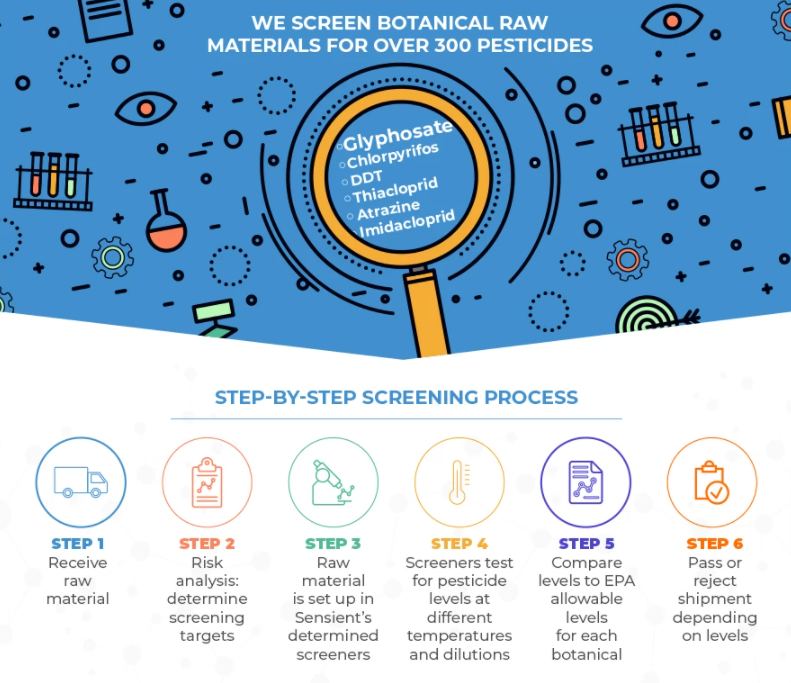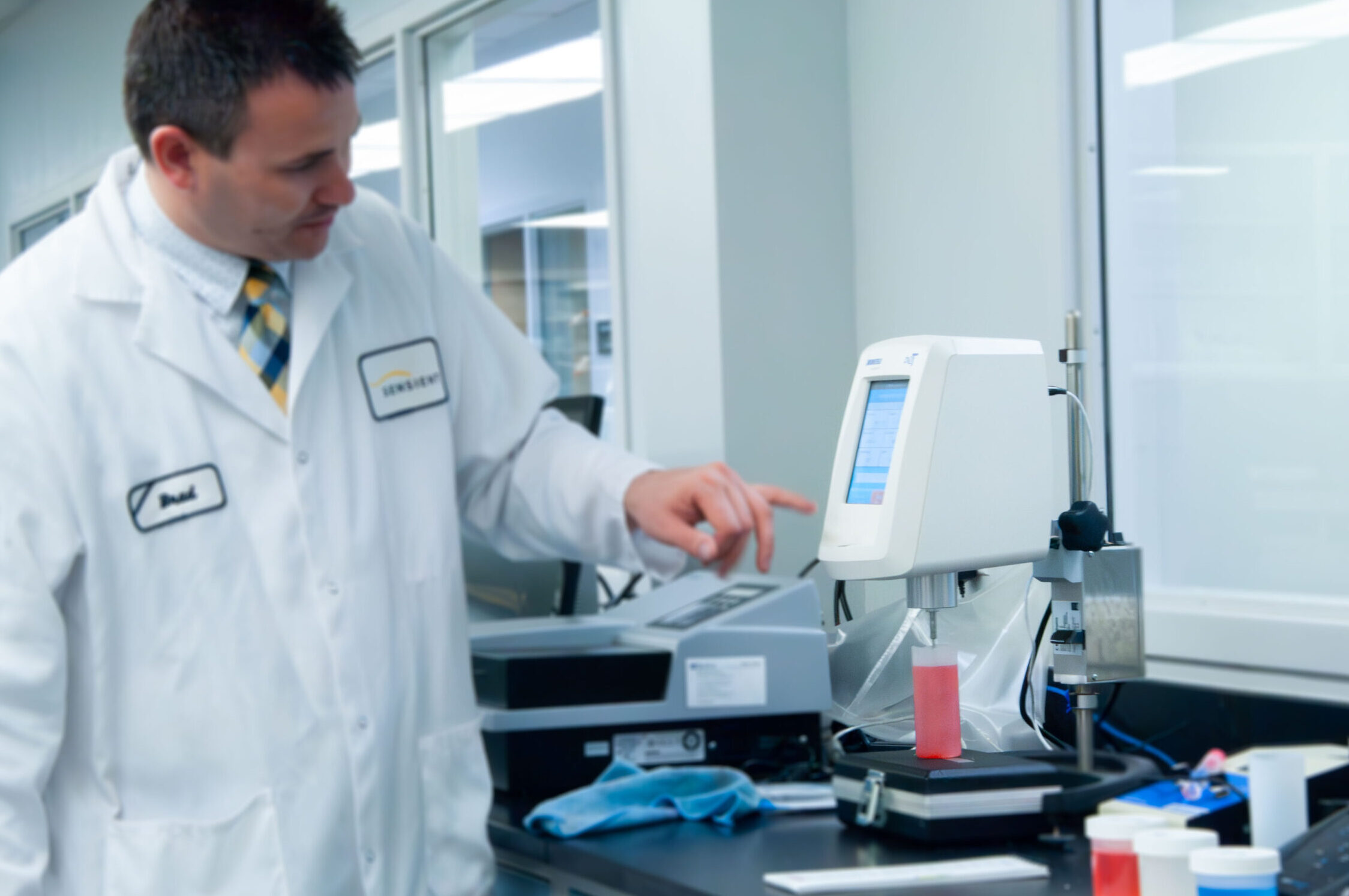Trends & Insights
Certasure™ Screening: Pesticides
Certasure™ Screening: Pesticides
While botanically sourced ingredients like natural colors add an inherent level of complexity to safety controls, they enable manufacturers to respond to consumer desire for clean and simple ingredients. However, today’s consumers seek even greater transparency from pharmaceutical and nutraceutical companies.
The Structure of Certasure™
Developed in partnership with the Committee on Standards for Natural Colors (led by Dr. James E. Simon) in 2015, Certasure™ is a comprehensive certification program for colors from plant sources to ensure that they meet all safety and authenticity requirements offering full brand protection for our customers.
Natural color manufacturers and suppliers are directed by the FDA to test raw botanical materials for natural colors “to the best of their ability”. At Sensient, safety is one of our core values, so our safety protocols are prioritized to ensure we are delivering natural color solutions of the highest quality in terms of safety requirements. A natural color solution from Sensient should never cause a product to be recalled for exceeding specified levels of items like pesticides or heavy metals, because we test every batch of botanicals for the following:

The Pesticide Screening Process
The Reason for Pesticide Screening
Botanicals Carry Pesticide Risk: Pesticides are used by farmers to discourage or destroy pests or optimize crop growth. Pesticides are topical, so overspraying in one field can affect that field and its neighbors. The color extraction process can concentrate the pesticide above the acceptable level. Some countries allow the use of pesticides, like DDT which are not permitted in the U.S.
The Screening Process
HorizonScan: Our risk analysis is extremely robust, built using HorizonScan, a collaborative international food safety platform allowing us to track hazard and risk assessments around the world. We test for even more pesticides than the EPA calls out for each particular botanical and run scans for what the EPA and FDA are seeing in the market as up-and-coming pesticides so that our screening process is not missing anything.
Example: Forchlorfenuron was initially registered via petition to the FDA by its producer KIM-C1, LLC in 2004. It is listed as a plant growth regulator. The Code of Federal Regulations (CFR) provides tolerance levels for several botanical crops. In grapes, the tolerance level for Forchlorfenuron is 0.03 ppm and 0.01 ppm in figs. In order to ensure that our natural colors are safe, Sensient tests all incoming botanical raw materials for Forchlorfenuron at the strictest level listed by the CFR—in this case, 0.01 ppm.

Botanical Raw Material Failure Rate for Pesticides
We reject any botanical raw material lots that fail our rigorous screening process for pesticide levels. That lot is then returned to the original vendor who can choose to put it back into the market.
There have been times in the past when we reject up to 8 in 10 shipments of paprika for pesticide presence.
If a botanical raw material or vendor does not meet Sensient’s specifications, we immediately take determine corrective action by discussing expectations and identifying the failure’s root cause.
Build Consumers’ Trust through Natural Ingredients like Colors with High Standards
Our pesticide screening process is a necessary component of our commitment to guarantee safe natural color solutions. Leading brands can rely on the safety promise of Sensient’s Certasure™ program while innovating naturally and colorfully.
We encourage manufacturers to always inquire about the safety protocols taken to ensure their natural ingredients are authentic and we hope our competitors are performing similar testing.
When you see the Certasure™ shield on shipping containers of our natural color solutions, you can be absolutely certain that it was tested under the most rigorous safety standards.
If you have questions about our natural colors or our pesticide screening process, feel free to schedule a consultation.
This blog is part of an ongoing series sharing details about each of our robust screening processes.
Let's Get Started!
Requesting a consult with Sensient's ingredients experts is easy and our team is ready to assist!


